Fast forward to October 20 —the morning after the longest election in Canada's history, the 2015 federal election campaign, and Canada has just woken up to a hung parliament. No party has a majority of federal seats. Experts suggest a high-stakes political poker match to follow. Who backs who, and who's just bluffing?
Polls suggests a shake up of parliament is a strong possibility. A new Forum Research poll this week—the first since the election was called —said the NDP are headed for a "solid minority." A recent Globe & Mail prediction showed the NDP and Liberals having a 95 per cent chance of taking more seats than Conservatives.
So might this hold and Canada see an historic orange-hued minority government with Prime Minister Tom Mulcair taking the chips?
Or will Stephen Harper pull an ace and squeak out a third minority government to cling to power?
If Harper does, will he survive the follow-up match —the throne speech?
And what would a third-place Justin Trudeau do in these ‘minority games’? The man who grew up at 24 Sussex with his father, Pierre, as Prime Minister, could prop up either the NDP or the Conservatives in a political power play. Or sit on the sidelines with his cards to his chest.
The National Observer put all these scenarios to a panel of five national political experts —Bruce Anderson, Tom Flanagan, Nik Nanos, Mario Canseco and Michael Byers.
What if, a Conservative minority?
In one dealing of the deck, we asked them to game out what they expect to happen if voters hand Conservatives a win with the most seats, but not a majority. Most of the panel expect Stephen Harper would be under enormous pressure to step down.
“Unless Stephen Harper gets a majority, it’s hard to see him staying in office for very long,” said Bruce Anderson, chairman of Abacus Data, and a frequenter on CBC's The National, from Ottawa.
And if he did, a Conservative leadership race would follow, and that party’s new leader would become leader of a very vulnerable minority government.
After an election, if no party commands a majority of seats (a hung parliament), the Prime Minister of the previous parliament still has the option to face the House of Commons to see if he or she can survive a vote of non-confidence. But far more commonly, a losing Prime Minister resigns, and the leader of the first-place party is asked by the Governor General to form government. A new cabinet smiles for a photo, and a throne speech is written.
A minority government's first big test is if it survives the Throne Speech, which is presented at the first return of parliament.
But even if Conservatives squeaks out a minority result in 2015, Anderson says Harper’s relations with other parties have “calcified” so badly, he believes the other parties would be cold to backing the Conservatives into a second decade of power.
"This version of the Conservative party has never really embraced the idea of compromise and bridge-building and looking to other parties for support on key pieces of legislation. I think they prefer to give people the impression that nobody else supports them —not the media, not the other parties, and they’re okay with that."
If Harper doesn’t resign, UBC political scientist and Canada Research Chair Michael Byers expects the Prime Minister would be thrown out by January 2016, at the first opportunity —the throne speech.
“That’s when you do it. [It’s] the first chance that the government has to prove that the Prime Minister has the support of the House of Commons. If you don’t have the support of the House of Commons, you’re not Prime Minister. That’s the rule,” said Byers, who was reached in the UK.
Waiting too long, he said, can blow the opportunity.
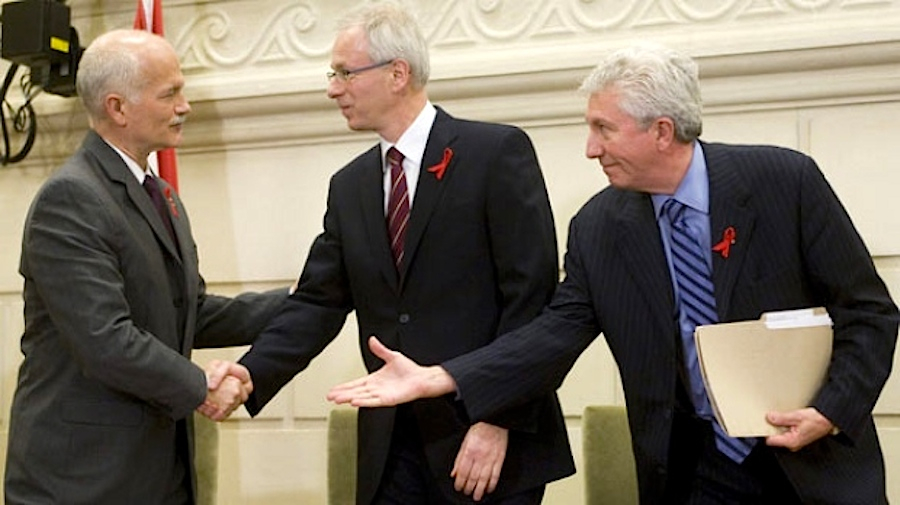
NDP leader Jack Layton, Liberal leader Stephane Dion and Bloc leader Gilles Duceppe in 2008 at a press conference announcing a coalition accord to take power from the Conservative minority government. CP photo.
In October 2008, Stephane Dion’s Liberals, who had just suffered a distant second-place finish in that fall’s election, toyed with supporting Harper's minority government throne speech, with changes to retain the Kyoto climate change treaty. But the party was divided, and Liberals abstained from the vote, allowing the Conservative government to live another day.
Then Dion spectacularly proposed to become an interim Prime Minister in a controversial Liberal-NDP coalition backed by the Bloc Quebecois to replace the Conservative government. Dion, Jack Layton and Gilles Duceppe famously shook on it, and signed a formal coalition agreement, giving NDP six cabinet posts. Harper would be defeated at the next parliamentary vote, in a kind of palace coup.
The move provoked a political crisis, and Harper prorogued parliament — a seldom-used procedure to shut down parliament temporarily. He used the time over Christmas to stoke populist anger against the coalition proposal. Large, angry crowds soon gathered outside legislatures. Many people were confused, thinking Harper had won the election. The coalition idea soon died.
Could Harper survive?
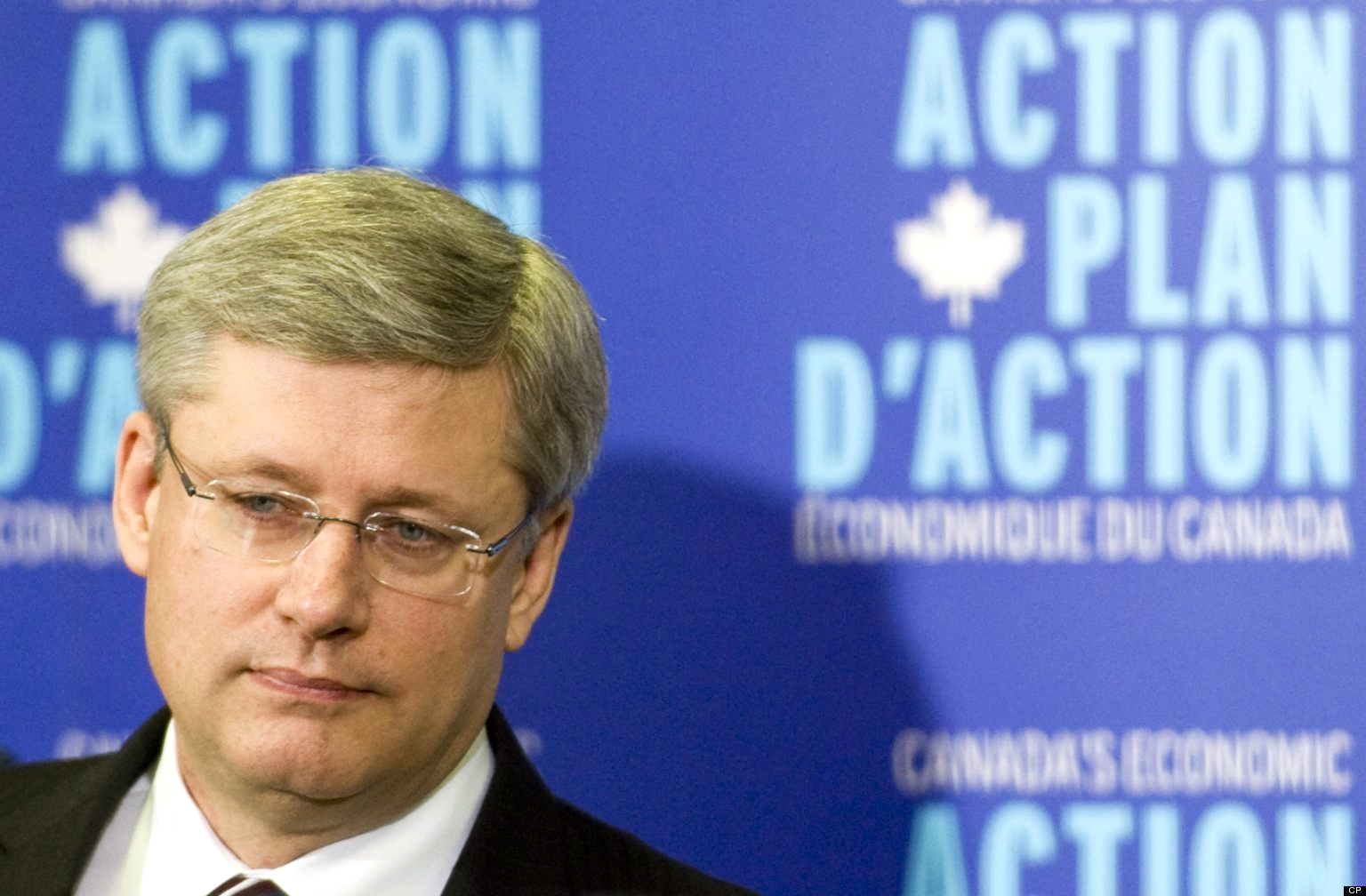
But Tom Flanagan, former Conservative adviser to Prime Minister Harper, says he may not fold if his party is reduced to a minority on Oct.19.
The retired University of Calgary political scientist, and an expert in “game theory,” says Harper holds an important trump card. Constitutionally, he doesn’t have to resign. Only a vote of non-confidence in parliament can remove him.
“So you get up the next morning, and [Harper is] still the Prime Minister,” said Flanagan from Calgary.
"The 'first mover advantage' is really very powerful, because Harper remains Prime Minister until he resigns or is defeated [in the House of Commons]. And if he chooses to carry on, there’s no definite timeline for him to recall parliament."
“So if the election is Oct.19, 2015… there’s no big problem with [Harper] waiting until late January or even early February [to face a parliament]. Sure there will be criticism, but constitutionally he’s on solid ground.”
“With three months to work with, Harper could go to any leader of the other parties. Conceivably it could even be the leader of the Green or the Bloc parties if it’s just a matter of a couple seats.”
It’s an outcome that Green leader Elizabeth May is pitching —hoping her party, currently with two seats, could be a wild card and king maker, forcing democratic and environmental reforms in return for support.
More likely though, Flanagan expects Harper will chat with the NDP and Liberals who are expected to hold the balance of power.
“He’d say, ‘Look, I’m a realist, I have to have support to continue in power, so here’s what I’m willing to do, or what would you like to see in the budget?’”
Flanagan says whether Harper chooses to stay on depends entirely on how close Tories are away from the 170-seat threshold for a majority.
"Let’s say the Conservatives win 160 seats, and the NDP wins 110, and the Liberals get 68 and forget Bloc and Greens…. I would expect them to consider it not as a repudiation but to continue governing."
But he concedes, if a Conservative win is far from a majority —say 140 seats, the NDP 120, and the Liberals 78 — Flanagan says it's less clear if Harper would continue, since the other two parties could combine to defeat him.
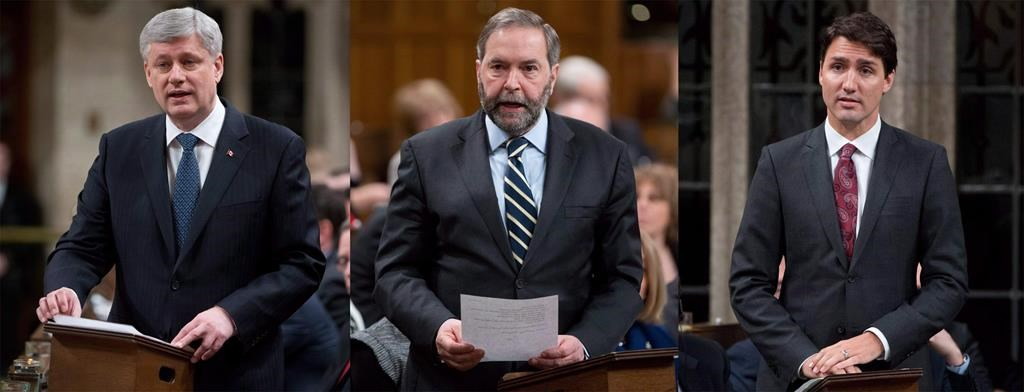
Popular vote will matter
National pollster Nik Nanos says the seat-count produces the technical victory— but in this election more than most, another number will be crucial.
"The popular vote will be the first signal to say who has the high ground to grab 24 Sussex,” said Nanos from Ottawa.
“So if, for example, Stephen Harper gets a higher popular vote than Tom Mulcair, from the Harper viewpoint, they have more support of Canadians, they would have greater legitimacy to govern."
A 36 per cent level of support allowed Harper to more comfortably take his first minority government in 2006 with 124 seats. Liberal leader Paul Martin quickly resigned, even though his party and the NDP could have combined their 132 seats to hold Conservatives off.
But now, Conservatives and the NDP are statistically tied at 31 per cent, Nanos’ polls show. If that holds, Harper would have a harder time arguing he has the confidence of the people in a minority government, thereby adding pressure for an NDP-Liberal take over.
An NDP minority win— what if?

The second scenario put to the expert panel was a New Democratic victory outright— with the party winning a minority government and Tom Mulcair taking over as Prime Minister. Along with ecstatic supporters drinking spiked orange sodas on election night, the event would be historic —the first NDP federal government, and a decades-long dream of social democrats realized.
And almost certainly, says Bruce Anderson, Stephen Harper would resign. A quick Conservative leadership race would follow, with some suggesting an unofficial one may already be happening.
And if the NDP take power, Michael Byers says, it’s still far from certain what cards Trudeau would play. He expects the Liberal leader would be pressured to support Mulcair, at least initially. But fatally for Liberals, an NDP government would let Canadians see Tom Mulcair as Prime Minister, and an incumbent more difficult to defeat.
As a consequence, Byers believes, Trudeau might eventually work with wounded Conservatives to defeat Mulcair. "The Stephane Dion Liberals and the Michael Ignatieff Liberals both supported Conservative minority governments for some time.”
"I think anyone who is thinking of voting Liberal needs to do so in confidence that they won’t be getting Stephen Harper back,” he added.
Flanagan seems to agree. "Justin Trudeau has already announced that he’s willing to support major elements of the Conservative program. Bill C-51, with some amendments. He supports larger subsidies to parents... although he said he wants to do it in a different way.”
The National Observer asked Trudeau, in a video interview, who he'd partner with in a minority parliament —Conservatives or the NDP?
“There’s no question I’ve spent my political career disagreeing with Stephen Harper on fundamental levels —fighting against his vision of a smaller, meaner Canada. I would never consider working with him, working for him, or forming any sort of coalition,” he said in Richmond, B.C. in late July.
On a coalition with Tom Mulcair, Trudeau held his poker face, only saying there were still “important differences” between them.
To coalition or not to coalition
All of the experts said an NDP-Liberal power play would likely not result in a formal coalition — a formal agreement to share cabinet roles, and to move forward with an agreed-upon political agenda. Byers said the recent UK experience with such an arrangement is telling.
In a 2010 election, British Conservatives narrowly missed the majority threshold, so they inked a deal to share power with the third-place Liberal-Democrats, giving its leader the Deputy Prime Minister position, and a place at the cabinet table. But by 2015, that junior party was decimated in the election, and Conservatives were returned to a majority.
“The ministerial limos just aren’t worth it if their hands end up being tied,” said Byers.
Vancouver-based pollster Mario Canseco with Insights West says the UK episode highlights the risks of coalitions.
"So, any “minor partner” in a coalition government is essentially on borrowed time. They cannot claim any of the successes of the “major partner” and find it difficult to have their own voice as the next election rolls around. Whoever chooses to be the “minor player” will suffer, because this is not a true partnership. It is happening out of need, not out of a true sense of compromise and inclusion,” he said.
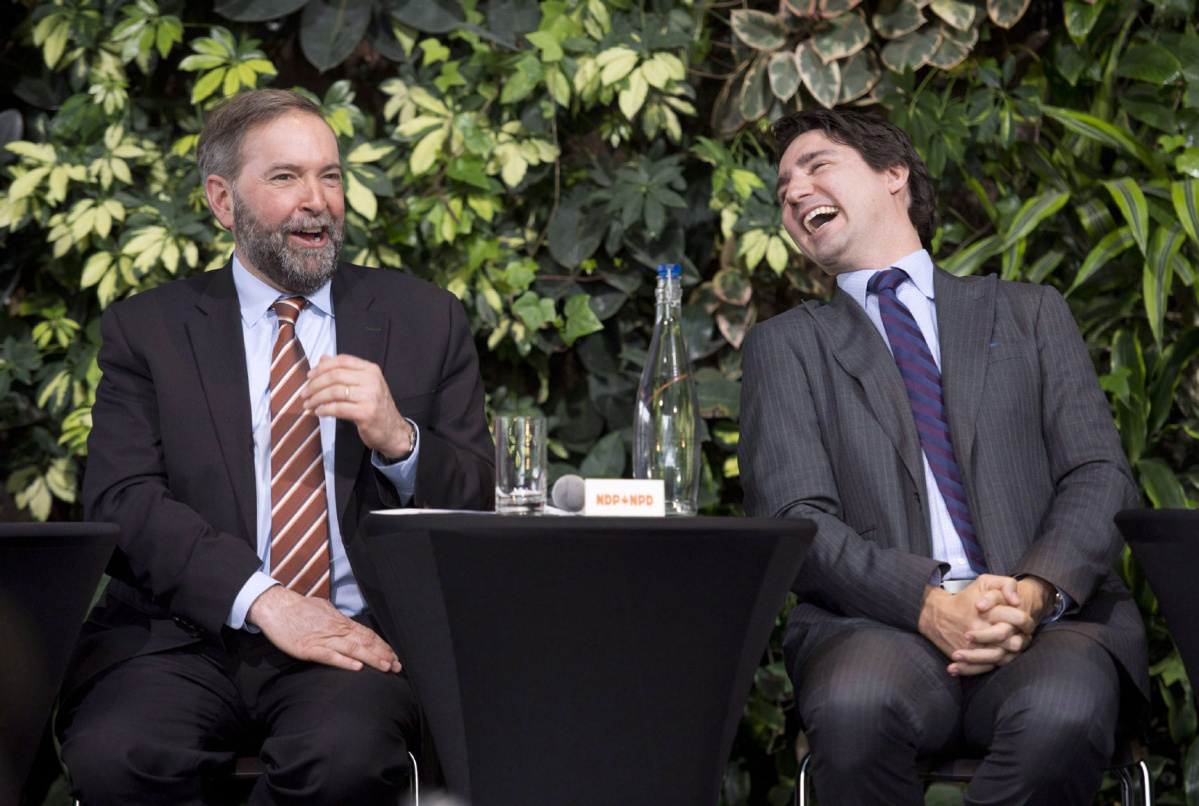
Tom Mulcair and Justin Trudeau share a laugh in CP file photo.
Informal partnerships
Much more common in Canadian history are informal arrangements— essentially to hold one’s nose as long as possible, allowing a minority government to survive until the political conditions are favourable to force an election.
“The most likely scenario would be an informal coalition. Because it provides for the greatest amount of flexibility for all parties,” said Nanos.
Conservatives ran two minority governments in 2006 and 2008 this way— where every bill was a cold calculation: how many opposition MP votes could Harper pick up? And some bills died, such as gun control.
And in NDP lore, Liberal minority governments backed by New Democrats in the 1960s and 70s produced some of the most progressive legislation the country has ever seen— the Canada Pension Plan and Universal Public Healthcare.
How this 2015 poker match will end is anyone’s bet. Some have suggested Harper has stacked the deck with an early election call intended to enable Conservatives to outspend their opponents. Others say Mulcair, Trudeau and May have yet to play their strongest cards.
Correction: originally this article stated "when no party commands a majority of seats after the election (a hung parliament), the party with the most seats gets the first chance to govern." This is not true. Following the election, the Prime Minister of the previous parliament has the option of facing parliament to test its government, even though it could be defeated. This occurred in 1925, when the Mackenzie King government lost its majority status and took in fewer seats than the former Official Opposition party, the Conservatives. King chose to face the House of Commons anyway to test its confidence, and did so successfully until June 1926.
http://www.iranhost24.com
http://www.iranhost24.com/script/til.php?be=17]Cialis 20 Mg Comprar
Participating in community forums along with other weblogs that are similar to your blog's area of interest is a wonderful way to advertise your web site. Just location a web link for your blog site while you are taking part in these community forums and blogs and forums to get additional and much more audiences in your web site, which suggests more money for yourself.
http://www.gujaratflowerdecoration.com/local/access.asp?id=4-Kamagra-100...äljes/]Kamagra 100
Coffee could be a great drink for anyone who performs from home and wishes to get out. Coffee houses attribute free of charge Wi-fi for internet access, significance that one could job after that as opposed to house. Understand that lots of dining places have World wide web as well.
http://www.thedearbornacademy.org/scripts/biller.php?f=18-Cialis-5-Mg-Co... 5 Mg
Consider forward when you plan on creating a automobile acquire. Usually do not create the oversight of purchasing a vehicle without the need of thinking of regardless of whether it might be functional for future use. Getting a sports vehicle will never make significantly feeling if you are planning to experience a loved ones whenever soon.
http://www.fundrive.co.il/care/component.asp?banner=115-Hgh-Somatropina-... Somatropina

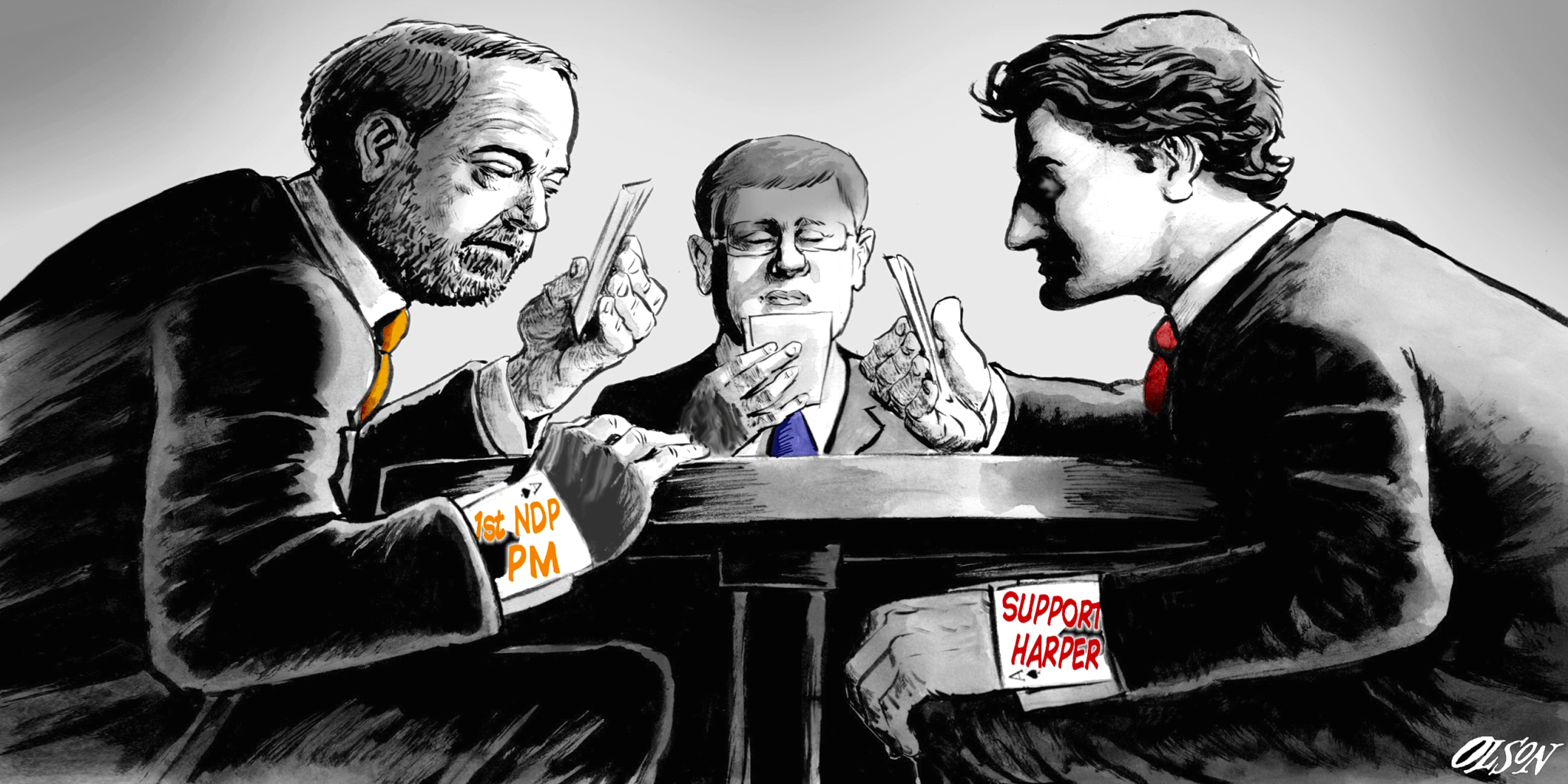

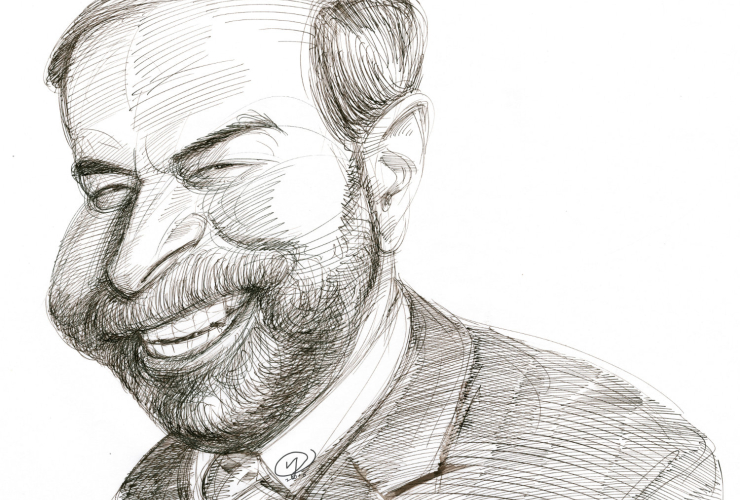
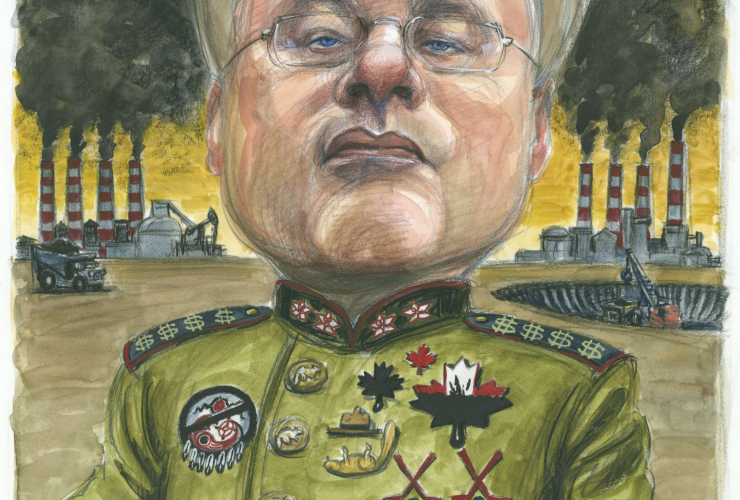
Comments